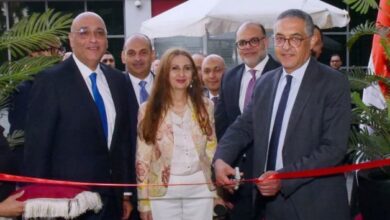Need to infuse entrepreneurship into school curricula

Dr Biju Dharmapalan
Skill is learned and acquired during the early days of human life. The adaptability of a kid to learning new things is something everyone should admire. They fall several times before learning to walk properly. This essence can be observed in every walk of a kid’s life. If we train kids properly, we can mould them into anything we aspire. Be it good engineers, doctors, scientists, or anything else. They are always curious to learn and understand new things. Its their innate behaviour. This natural behaviour is damped by the education system that has been followed in our schools. It’s the curiosity that leads to innovation. Unfortunately, we speak about innovation and startups either at the higher education level or after passing out the educational institutions. What is the use of talking to a generation who lost the essence of innovation through the rote learning process practised in our schools and colleges?
As the common adage goes, the seeds of character and attitude are sown during one’s school life. When we look at the life histories of great entrepreneurs and scientists, we can see that the spark for doing something special was initiated during their school years. Elon Musk, the founder of companies like SpaceX, Tesla, and Neuralink, reportedly sold a video game he created at the age of 12 and later started a web software company while attending the University of Pennsylvania. Mark Zuckerberg, the co-founder of Facebook, started coding in middle school, where he developed a messaging program called “Zucknet” for his father’s dental office. He continued to hone his programming skills throughout high school, creating various software projects. There are many such examples from the entrepreneurial arena.
School children possess the ability to think freely and come up with crazy ideas. The limitations of reality do not shackle their mind. They are unfettered by the comments made by others and don’t have any preconceived notions about an idea. So they don’t have any inhibitions when asking questions. This unrestricted thinking allows them to generate ideas that may seem outlandish to adults but often contain the seeds of groundbreaking innovation. It encourages critical thinking and pushes boundaries, essential ingredients for innovation. Of course, a few teachers in our education sector may find it challenging to manage such students.
School students also have an inherent curiosity. The insatiable curiosity drives them to seek new knowledge and experience, fueling their creativity and innovation. The quality of innovation observed in the exhibits at various school science fairs, children’s science congresses, and IISF’s students’ science village provides ample proof of this. Some of the innovations displayed by the students in these exhibitions are at par or better than what our adult scientists have achieved in their lifetime. The Department of Science and Technology has instituted INSPIRE – MANAK (Million Minds Augmenting National Aspiration and Knowledge) Awards to support student innovators. MANAK, implemented through the National Innovation Foundation – India (NIF), seeks to inspire students in grades 6 to 10 to pursue their studies. The initiative aims to focus on one million unique ideas/innovations based on scientific principles and have practical applications in society. Its goal is to promote a culture of creativity and encourage inventive thinking among school children. Another premier scientific organisation, the CSIR, has instituted the CIASC (CSIR Innovation Award for Schoolchildren) to harness schoolchildren’s creative and innovative spirit.
From fostering creativity and curiosity to instilling resilience and a willingness to take risks, the lessons learned in school can shape the trajectory of an individual’s entrepreneurial journey. Though initiatives like Atal Tinkering Laboratories (ATLs) by the government of India foster curiosity, creativity, and imagination in young minds, most of our schools still put more stress on the traditional mode of rote learning. Rote memorisation and standardised testing prioritise conformity over creativity, relegating innovation to the sidelines. Furthermore, the fear of failure and the pressure to excel academically discourage risk-taking and experimentation. As a result, many children are discouraged from pursuing their innovative impulses, losing their untapped potential.
Educational systems must undergo a paradigm shift to unlock children’s innate creativity. We need to include innovation as a part of the school curriculum from the primary school level itself. Design activities that allow students to explore and ask questions about the world around them. Let the students learn from their surroundings, the problems their society faces or their parents face in their home, the richness of their local biodiversity and culture, etc. Teachers should give students creative projects from this so that students can come up with creative solutions. However, they should make sure the students do this during school hours. Otherwise, as seen in most schools, parents must ensure that their wards have completed their assignments. The present culture in most private schools is that teachers shy away from their duty and responsibility after taking hefty fees and passing them on to the parents. This won’t change the student’s learning process but will help parents relearn their school lessons. The actual transformation will happen only if a student is given a free hand in doing their assignments without the interference of either teachers or parents. They should learn to accept failure and enjoy their success with their friends.
Teachers should impart the essence of transdisciplinarity envisioned in NEP-2020 to students from the beginning of their school education. They should help students realise how music relates to physics or math and how language is important for understanding science. For this, we need to focus on changing the outdated curriculum of teachers’ training programmes offered by our universities. We must also provide refresher courses to school teachers in reputed national centres. This will help them to broaden their outlook in their domain.
Teachers should skip their egoistic attitude of I am always right, learn to respect students’ knowledge and initiate a new culture of student-teacher collaboration on our school campuses. Teachers should work hand in hand in developing the prototypes of student innovations and take steps to patent and commercialise the products. The government should duly recognise such school teachers in the public. Innovation is the wheel that drives our nation towards progress, and only with extraordinary teachers and students can our country move forward. Both should be handled with utmost care for the sake of the nation.
(The author is an adjunct faculty at the National Institute of Advanced Studies, Bangalore)



